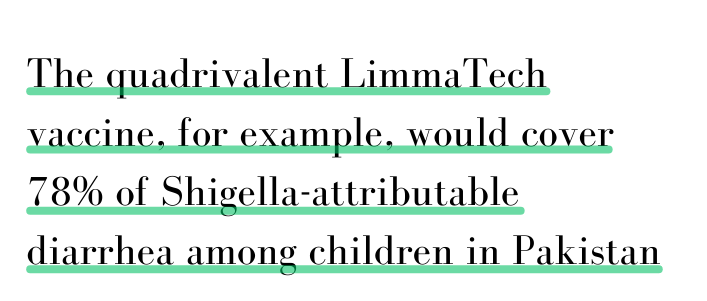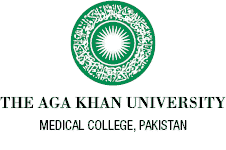Searching for Shigella, the bacteria causing diarrhea in Pakistan
Paediatricians know all too well the burden of diarrhea in Pakistan—but how much of it was being caused by the Shigella bacteria merited investigation.
At least one episode of Shigella-attributable diarrhea is experienced by nearly one third of children in low- and middle income countries during their first two years of life. Shigella is also a major cause of linear growth faltering which is a precursor to stunting among young children in such countries. Shigella drives antimicrobial resistance as well, which means that antibiotics don’t work on it.
The
Enterics for Global Health Shigella surveillance study to document its incidence and consequences over three continents (Asia, Africa and Latin America) is being undertaken by a consortium, including
The University of Washington, University of Maryland, University of Virginia and Emory University. It is taking place in Bangladesh, Gambia, Pakistan, Kenya, Malawi, Mali, Pakistan and Peru, all countries with a high burden of diarrhea.
In Pakistan, AKU is the coordinating institute with six sites from Bin Qasim and Nazimabad towns. In Bin Qasim town the population is mostly low-income and the main livelihood is through fisheries. In Nazimabad town, where AKU has two sites, the population is mainly low- and middle-income.
“It would be valuable to see how many Shigella isolates are seen … and to assess antimicrobial resistance patterns,” said Professor Dr Farah Qamar, who has been leading the study at the Department of Paediatrics & Child Health at AKU in Karachi. “A large-scale assessment is required to recommend the vaccine as a preventative measure for our children against this disease.”
On Thursday, Prof. Farah Qamar and her team held a dissemination session on how the research is going. The event was organised in collaboration with the Pakistan Paediatrics Association, and was attended by representatives from Pakistan’s vaccine authority and the WHO. Shigella is already on the WHO’s bacterial priority pathogen list for antimicrobial research and development and vaccines are in the works. AKU’s study is supported by the Bill & Melinda Gates Foundation and the University of Washington’s Department of Global Health.
Naveed Ahmed with Prof. Farah Qamar after presenting the Shigella surveillance updates on October 12, 2023, at the Marriott hotel in Karachi.
Initial findings indicate that roughly a quarter of small children with acute watery diarrhea are testing positive for Shigella bacteria in Karachi. Doctors are also reporting that some of these children were not responding to the antibiotic Ciprofloxacin.
“Shigella is one of the commonest causes of dysentery in children and a leading cause of diarrhea, hospital admissions,” said Dr Jamal Raza, who runs the Sindh Institute of Child Health & Neonatology. He was invited to speak at the dissemination session. “But it also has an impact on their growth and nutrition and causes stunting. Over the decades ORS was the major step to cut mortality from diarrhea and then the Rotavirus vaccine was the next big step.”

Now robust vaccines (such as
LimmaTech) are in the
pipeline for Shigella, said Naveed Ahmed, who presented some key aspects of AKU’s contribution to the surveillance study. The goal is to determine the incidence of Shigella-attributed paediatric diarrhea among children, who are between 6 to 35 months. The team also wants to study resistance to commonly used antibiotics in Shigella isolates and determine the severity of diarrhea through risk of death and hospitalization.
More importantly, the AKU team will be looking at how much it is costing families and health care systems to handle children with Shigella. Vaccines would be key to reducing the burden of disease and the cost on healthcare systems. The quadrivalent LimmaTech vaccine, for example, would cover 78% of Shigella-attributable diarrhea among children in Pakistan.
Our Research
Liu J, Platts-Mills JA, Juma J, Kabir F, Nkeze J, Okoi C, Operario DJ, Uddin J, Ahmed S, Alonso PL, Antonio M, Becker SM, Blackwelder WC, Breiman RF, Faruque AS, Fields B, Gratz J, Haque R, Hossain A, Hossain MJ, Jarju S, Qamar F, et al.
Use of quantitative molecular diagnostic methods to identify causes of diarrhoea in children: a reanalysis of the GEMS case-control study.
Lancet. 2016 Sep 24;388(10051):1291-301. doi: 10.1016/S0140-6736(16)31529-X. PMID: 27673470; PMCID: PMC5471845.


